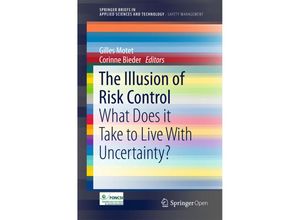This book is open access under a CC BY 4.0 license. This book explores the implications of
acknowledging uncertainty and black swans for regulation of high-hazard technologies for
stakeholder acceptability of potentially hazardous activities and for risk governance. The
conventional approach to risk assessment which combines the likelihood of an event and the
severity of its consequences is poorly suited to situations where uncertainty and ambiguity
are prominent features of the risk landscape. The new definition of risk used by ISO the
effect of uncertainty on [achievement of] one's objectives recognizes this paradigm change.
What lessons can we draw from the management of fire hazards in Edo-era Japan? Are there
situations in which increasing uncertainty allows more effective safety management? How should
society address the risk of potentially planet-destroying scientific experiments? This book
presents insights from leading scholars in different disciplines to challenge current risk
governance and safety management practice.

